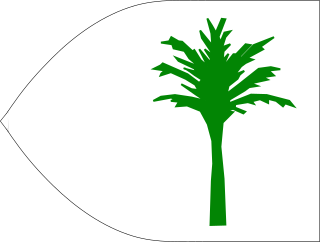
The Kanem–Bornu Empire existed in areas which are now part of Nigeria, Niger, Cameroon, Libya and Chad. It was known to the Arabian geographers as the Kanem Empire from the 8th century AD onward and lasted as the independent kingdom of Bornu until 1900.
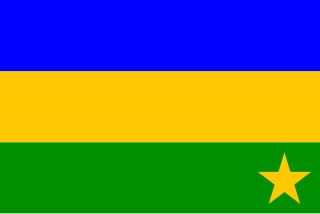
The Kanuri people are an African ethnic group living largely in the lands of the former Kanem and Bornu Empires in Niger, Nigeria, Chad, and Cameroon, as well as a diaspora community residing in Sudan. Those generally termed Kanuri include several subgroups and dialect groups, some of whom identify as distinct from the Kanuri. Most trace their origins to ruling lineages of the medieval Kanem–Bornu Empire, and its client states or provinces. In contrast to the neighboring Toubou or Zaghawa pastoralists, Kanuri groups have traditionally been sedentary, engaging in farming, fishing the Chad Basin, trade, and salt processing.
Ngazargamu, Birni Ngazargamu, Birnin Gazargamu, Gazargamo or N'gazargamu, was the capital of the Bornu Empire from ca. 1460 to 1809. Situated 150 km (93 mi) west of Lake Chad in the Yobe State of modern Nigeria, the remains of the former capital city are still visible. The surrounding wall is 6.6 km (4.1 mi) long and in parts it is still up to 5 m (16 ft) high.

Borno State is a state in the North-East geopolitical zone of Nigeria. It is bordered by Yobe to the west for about 421 km, Gombe to the southwest for 93 km, and Adamawa to the south while its eastern border forms part of the national border with Cameroon for about 426 km. Its northern border forms part of the national border with Niger for about 223 km, mostly across the Komadougou-Yobe River, and its northeastern border forms all of the national border with Chad for 85 km. It is the only Nigerian state to border up to three countries. It takes its name from the historic emirate of Borno, with the emirate's old capital of Maiduguri serving as the capital city of Borno State. The state was formed in 1976 when the former North-Eastern State was broken up. It originally included the area that is now Yobe State, which became a distinct state in 1991.
Kukawa, formerly Kuka ("Baobab"), is a town and Local Government Area in the northeastern Nigerian state of Borno, close to Lake Chad.

Rabih az-Zubayr ibn Fadl Allah, also known as Rabih Fadlallah and usually known as Rabah in French, was a Sudanese warlord and slave trader who established a powerful empire east of Lake Chad, in today's Chad.
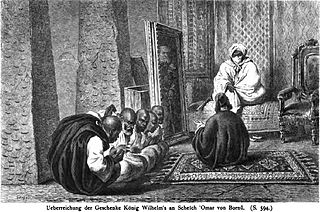
Umar I ibn Muhammad al-Amin or Umar of Borno was Shehu (Sheik) of the Kanem–Bornu Empire and son of Muhammad al-Amin al-Kanemi.

This is a timeline of Nigerian history, comprising important legal and territorial changes and political events in Nigeria and its predecessor states. To read about the background to these events, see History of Nigeria. See also the list of heads of state of Nigeria.

Shehu Muhammad al-Amîn al-Kanemi was an Islamic scholar, teacher, religious and political leader who advised and eventually supplanted the Sayfawa dynasty of the Kanem–Bornu Empire. In 1846, al-Kanemi's son Umar I ibn Muhammad al-Amin became the sole ruler of Borno, an event which marked the end of the Sayfawa dynasty's 800 year rule. The current Shehu of Bornu, a traditional ruler whose seat remains in modern Borno State, Nigeria, is descended from al-Kanemi.
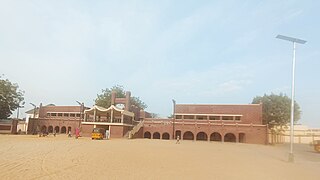
The Borno Emirate or Sultanate, sometimes known as the Bornu Emirate, is a traditional Nigerian state that was formed at the start of the 20th century. It is headed by the descendants of the rulers of the Bornu Empire, founded before 1000. The rulers have the title Shehu of Borno. The traditional emirate of Borno maintains a ceremonial rule of the Kanuri people, based in Maiduguri, Borno State, Nigeria, but acknowledged by the 4 million Kanuri in neighbouring countries.

Abu Bakr bin Ibrahim al-Kanemi CBE, was the Shehu of Bornu from 1902 to 1922.
The Dikwa Emirate is one of the successor states to the old Bornu Empire, a traditional state within Borno State, Nigeria. It was established in 1901 at the start of the colonial period after the Bornu empire had been partitioned between the British, French and Germans.

'Abd ar-Rahman, Abdurrahman or Darman was Shehu of Borno from 1853 to 1854.
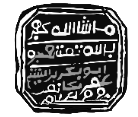
Bukar or Bukar Kura bin Umar al-Kanemi was Shehu of Borno from 1881 to c. 1884.
Ibrahim or Ibrahim bin Umar al-Kanemi was Shehu of Borno from c. 1884 to c. 1885.
Kyari or Khair bin Bukhar al-Kanemi (?-1894) was Shehu of Borno in 1893–1894.

Shehu Umar Sanda ibn Ibrahim Kura al-Kanemi was the Shehu of Borno from 1922 to 1937. He was the son of Shehu Ibrahim Kura of Borno and brother of Shehu Abubakar Garbai.
Sanda Wuduroma, or Abu Sanda bin Buqar al-Kanemi, (?–1894) was Shehu of Borno in 1894.
Laminu Njitiya was a 19th-century Shuwa Arab aristocrat who served as an influential adviser to Umar bin Muhammad al-Kanemi, the Shehu of Bornu. He was often described as the most powerful figure in Bornu during the second reign of Umar.
Galadima is a historical title that referred to a high-ranking official or nobleman within various states of the historical central Sudan region, including the Hausa Kingdoms, Kanem-Bornu, and the Sokoto Caliphate. The title was typically held by individuals responsible for overseeing administrative, military, or diplomatic affairs. Although the exact roles and responsibilities of the Galadima varied across different polities, it was consistently associated with influential and authoritative figures. Today, the title exists as an honourific in most states in Northern Nigeria.













